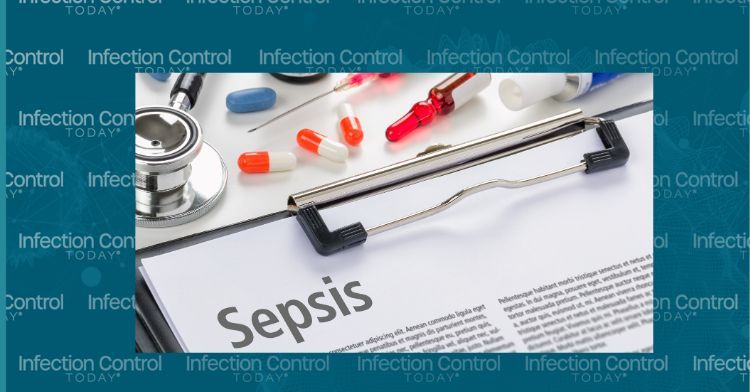Results of a 2023 State of Sepsis Awareness Survey
September is Sepsis Awareness Month, and a recently published study examines what patients and health care workers know—and fear—about sepsis.
Sepsis
(Adobe Stock FILE #: 110860650 By Zerbor)

As reported by Infection Control Today® (ICT®), sepsis is an often deadly condition. It is the second highest cause of readmissions, death, and expenses in US health care facilities. Only congestive heart failure is more common. Vaccines are being developed for sepsis, but more must be done. The CDC recently launched a new sepsis guide for hospitals, but how do patients and caregivers feel about the danger of sepsis and its complications?
The survey’s organizers were trying to examine the feedback of a group of survey respondents who have either received a sepsis diagnosis or have a loved one affected by it. They compare the respondents’ views and opinions on various health care issues, such as antibiotic prescription and antimicrobial resistance.
"Sepsis is a societal crisis that exacts a terrible cost to patients and the healthcare system. Our company’s mission is to prevent the avoidable harm and death caused by sepsis misdiagnosis by one day eliminating this risk to patient safety and care quality,” Greg Bullington, CEO and cofounder of Magnolia Medical Technologies, Inc, which published the survey, told ICT. We do so through purposeful innovation that improves the accuracy of critical lab tests used to identify and optimize treatment for this condition and through our provider and patient outreach efforts. This report highlights the need for additional education on the diagnostic and care pathway for suspected sepsis so that consumers can take the appropriate action, when needed, to improve outcomes for themselves and their loved ones if they encounter this devastating disease.”
This study, "State of Sepsis Awareness 2023," stemmed from the data acquired from the recent report, “State of Hospitalized Patient Care in the U.S. 2023,” which examines how important it is to consider how much people understand and are concerned about risks in hospitals, such as antibiotic stewardship and hospital-acquired infections.
The study’s data highlights include Individuals with prior experience of sepsis were 67% more likely to feel "Extremely fearful" about contracting an infection during their hospital stay compared to those without sepsis experience. Those individuals who had encountered sepsis were 30% more inclined to "Strongly agree" that health care providers should exercise greater caution when prescribing antibiotics. Individuals affected by sepsis demonstrated a 30% higher level of familiarity with the term "AMR" (antimicrobial resistance). Respondents who had experienced sepsis themselves or through their loved ones were also 46% more concerned "about the consequences of infections caused by bacteria resistant to antimicrobial treatment on their current and future health." Those impacted by sepsis were 38% more likely to "Strongly agree" that there is a necessity for "increased education for patients regarding antimicrobial-resistant bacteria." Finally, individuals affected by sepsis displayed a 49% higher awareness that "inaccurate results from a blood culture test can result in unnecessary administration of antibiotics" compared to those unaffected by sepsis.
Newsletter
Stay prepared and protected with Infection Control Today's newsletter, delivering essential updates, best practices, and expert insights for infection preventionists.
Reducing Hidden Risks: Why Sharps Injuries Still Go Unreported
July 18th 2025Despite being a well-known occupational hazard, sharps injuries continue to occur in health care facilities and are often underreported, underestimated, and inadequately addressed. A recent interview with sharps safety advocate Amanda Heitman, BSN, RN, CNOR, a perioperative educational consultant, reveals why change is overdue and what new tools and guidance can help.
New Study Explores Oral Vancomycin to Prevent C difficile Recurrence, But Questions Remain
July 17th 2025A new clinical trial explores the use of low-dose oral vancomycin to prevent Clostridioides difficile recurrence in high-risk patients taking antibiotics. While the data suggest a possible benefit, the findings stop short of statistical significance and raise red flags about vancomycin-resistant Enterococcus (VRE), underscoring the delicate balance between prevention and antimicrobial stewardship.
What Lies Beneath: Why Borescopes Are Essential for Verifying Surgical Instrument Cleanliness
July 16th 2025Despite their smooth, polished exteriors, surgical instruments often harbor dangerous contaminants deep inside their lumens. At the HSPA25 and APIC25 conferences, Cori L. Ofstead, MSPH, and her colleagues revealed why borescopes are an indispensable tool for sterile processing teams, offering the only reliable way to verify internal cleanliness and improve sterile processing effectiveness to prevent patient harm.
The Next Frontier in Infection Control: AI-Driven Operating Rooms
Published: July 15th 2025 | Updated: July 15th 2025Discover how AI-powered sensors, smart surveillance, and advanced analytics are revolutionizing infection prevention in the OR. Herman DeBoard, PhD, discusses how these technologies safeguard sterile fields, reduce SSIs, and help hospitals balance operational efficiency with patient safety.
Targeting Uncertainty: Why Pregnancy May Be the Best Time to Build Vaccine Confidence
July 15th 2025New national survey data reveal high uncertainty among pregnant individuals—especially first-time parents—about vaccinating their future children, underscoring the value of proactive engagement to strengthen infection prevention.